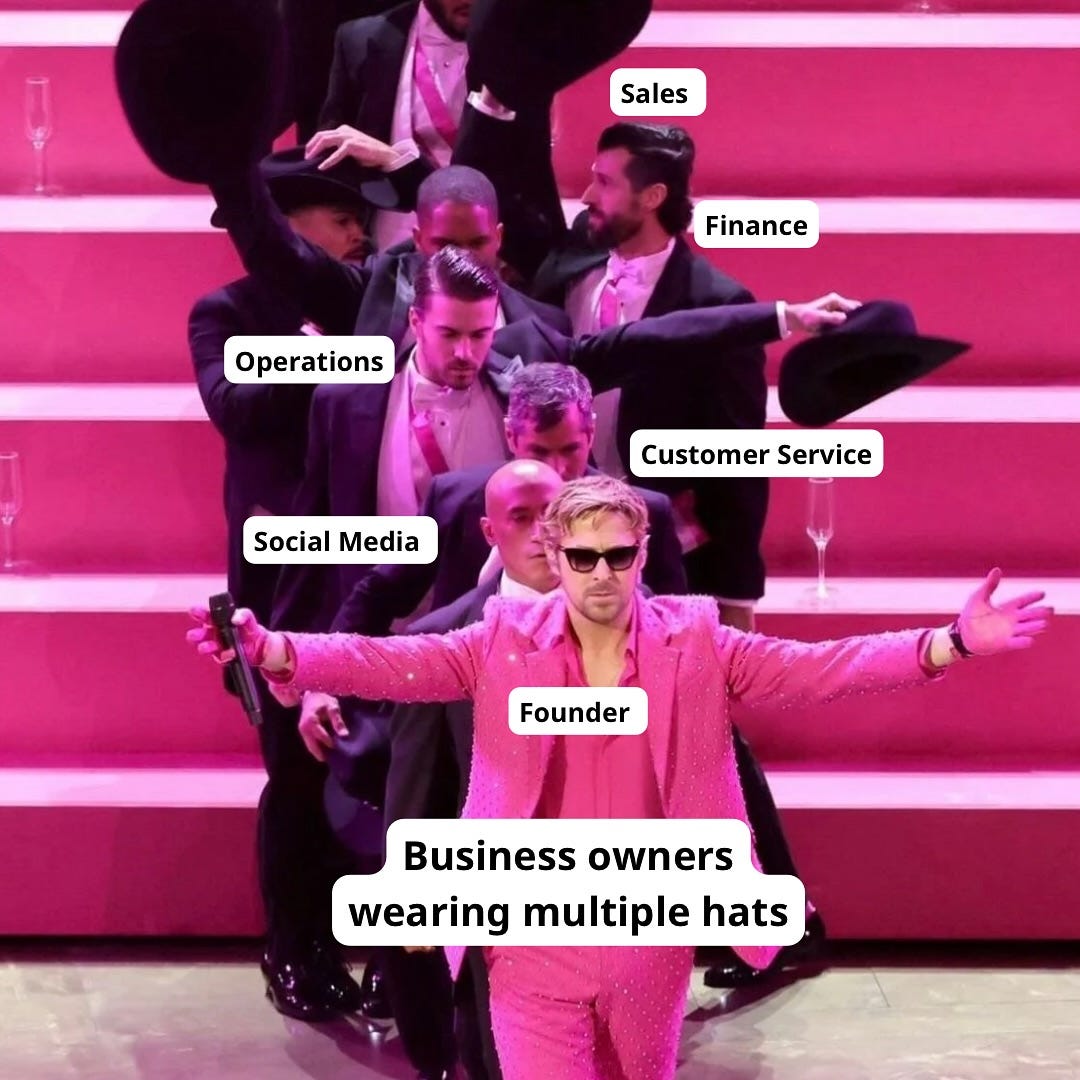ANOTHER DAY—ANOTHER STARTUP INSIGHT
We’re opening up sponsorship opportunities for early-stage founders who want to showcase their startups to a highly engaged and targeted audience. Please check out more details about this sponsorship at the link below:
Startups are no longer built the same way they were 5 or 10 years ago.
The playbook has changed.
The platforms have changed.
The capital markets have changed.
And perhaps most importantly — what customers expect from a startup has changed.
So where are we headed next?
Let’s break down some key trends that are shaping the future of startups — and what you, as a founder, can do to stay ahead of the curve.
1. 🧠 AI is not a feature — it’s infrastructure
The age of slapping "AI-powered" onto your pitch deck is over. We're entering a phase where AI becomes part of the core plumbing of how startups are built.
Founders today are:
Automating product development (e.g. tools like Lovable AI or Builder.ai)
Using AI to scale customer support before they have a team
Building leaner companies with fewer employees but more leverage
According to HubSpot's 2025 report, AI is becoming a critical tool for startups at the seed stage, with 75% of startups raising between $1–2 million relying significantly or entirely on AI. The report emphasizes the role of AI in improving efficiency, targeting, and engagement during fundraising. (Source)
Crunchbase also shows that funding to AI-related companies reached over $100 billion in 2024 — up more than 80% year over year from $55.6 billion in 2023. (Source)
Startups like Lovable AI and Builder.ai are letting users create full-stack apps through simple prompts, cutting dev time by 70% or more.
2. Micro startups & solopreneurs are here to stay
With low-code/no-code tools, AI copilots, and plug-and-play infrastructure, a solo founder can now:
Launch a SaaS in a weekend
Scale a newsletter into a media company
Build a niche product and get profitable before raising a dime
These are the rise of what Sahil Lavingia calls "default alive" startups — small, lean, and profitable from Day 1.
According to the data from 2024:
35% of all new startups were led by a single founder. (Source)
38% of bootstrapped startups were driven by solo founders. (Source)
Solo-founded startups have more than doubled over the past decade, rising to 35% in 2024 from 17% in 2017. (Source)
These businesses often achieve significant revenue with high profit margins. (Source)
3. Startups are global from day 1: build anywhere, sell everywhere
The pandemic changed everything.
Now, global talent pools, global-first go-to-market, and cross-border investing are not exceptions — they’re the new norm.
The next great startup might be:
Founded in Vietnam
Funded by angels in the US
Hiring devs in Phillipines
Selling to customers in Europe
Research shows that around 41% of startups in the U.S. have employees outside the U.S., highlighting the increasing globalization of startup teams. (Source)
It’s no longer “Silicon Valley or bust.”
The startup stack is global — and the future is distributed.
So, what founders should do:
Hire the best talent, not just the closest.
Think globally from day 1 because your competitors already are
Leverage emerging market arbitrage: lower burn, same execution.
MORE STARTUP INSIGHTS:
4. The VC landscape is getting rewritten
Gone are the days when VCs had the power seat in every negotiation. Founders today have:
More fundraising alternatives (crowdfunding, revenue-based financing, SAFEs with founder-friendly terms)
Greater access to angel networks and rolling funds
A growing awareness of what venture-scale really means
Not every business needs to be a billion-dollar exit — and that’s okay.
Research shows:
Pre-seed startups raised $716 million in Q4 2024, down from $965 million in Q3 and $1.2 billion in Q2, reflecting a cooling in early-stage funding. (Source)
Also, seed-stage deal count declined by 26% year-over-year in Q4 2024. (Source)
Meanwhile, the crowdfunding market is also projected to grow from $17.72 billion in 2024 to $20.46 billion in 2025, at a CAGR of 15.5%, fueled by increased social media use and more crowdfunding campaigns, which have a success rate of about 22.4% — This is showing that more startups are turning to crowdfunding not just as a financing tool, but as a way to validate demand early, build a loyal community from day one.
For example, Beehiiv, a newsletter platform, reached profitability before raising its $12.5 million Series A funding round led by Lightspeed Venture Partners, and bootstrapped until they hit product-market fit.
5. Community is the new moat
More than followers, today’s most durable startups are building movements.
Indeed, community is the new moat for startups.
Not features.
Not pricing.
Not even speed.
But a tribe of people who care about your brand, stick around when it’s not perfect, and proudly spread the word like it’s theirs.
You can copy a product.
But you can’t copy connection.
Communities that:
Evangelize the product
Offer feedback loops
Create content for the brand
Stick around even when growth slows
Look at Notion, Figma, and even smaller players like Arc or Linear.
It’s no longer enough to have a good product.
People want to feel seen, heard, and part of something bigger.
When your audience becomes your advocates, you unlock exponential growth that no paid ad can buy.
Take the example of those who build in public.
Founders who share their journey—wins, losses, rough drafts and roadmap updates—not only attract early adopters, but also build emotional equity with their audience. People don’t just use the product; they root for it. They feel like insiders. That kind of buy-in is priceless.
Platforms like X (formerly Twitter), LinkedIn, and Discord are becoming modern town squares for these micro-communities. You don’t need millions of followers—you need 100 true fans who feel invested in your mission.
6. Purpose-driven startups will outlast the trendy ones
Sustainability, values, and founder authenticity matter.
We’re seeing a rising demand — especially among Gen Z and younger millennial users — for:
Ethical, transparent companies
Mission-driven teams
Founders who are human, not just hustle machines
It's no longer enough to "move fast and break things."
The future belongs to startups that move fast and build with intention.
Research shows that customers are driven by purpose (44%) than by value (37%). (source)
For example:
Poppi, the prebiotic soda brand, built a wellness-focused mission around gut health — and rode TikTok virality + brand trust all the way to a Pepsi acquisition earlier this year for nearly $2 million.
So, your “why” matters.
Users are tired of growth hacks and buzzwords.
In any industry, they’re all looking for meaning!
Final thoughts: what this all means for you
The future of startups isn’t about unicorn hunting or blitz-scaling.
It’s about:
Clarity of focus over complexity.
Efficiency over excess.
Depth over breadth.
Tribe over transaction.
If you’re a founder right now, the path ahead is narrower — but it’s also cleaner.
The noise is less.
The hype is fading.
That’s your window to build something real.
So what will your startup be in 2025?
THANKS FOR READING!
- Gracie from What A Startup














Great summary of insights, Gracie. Thank you!